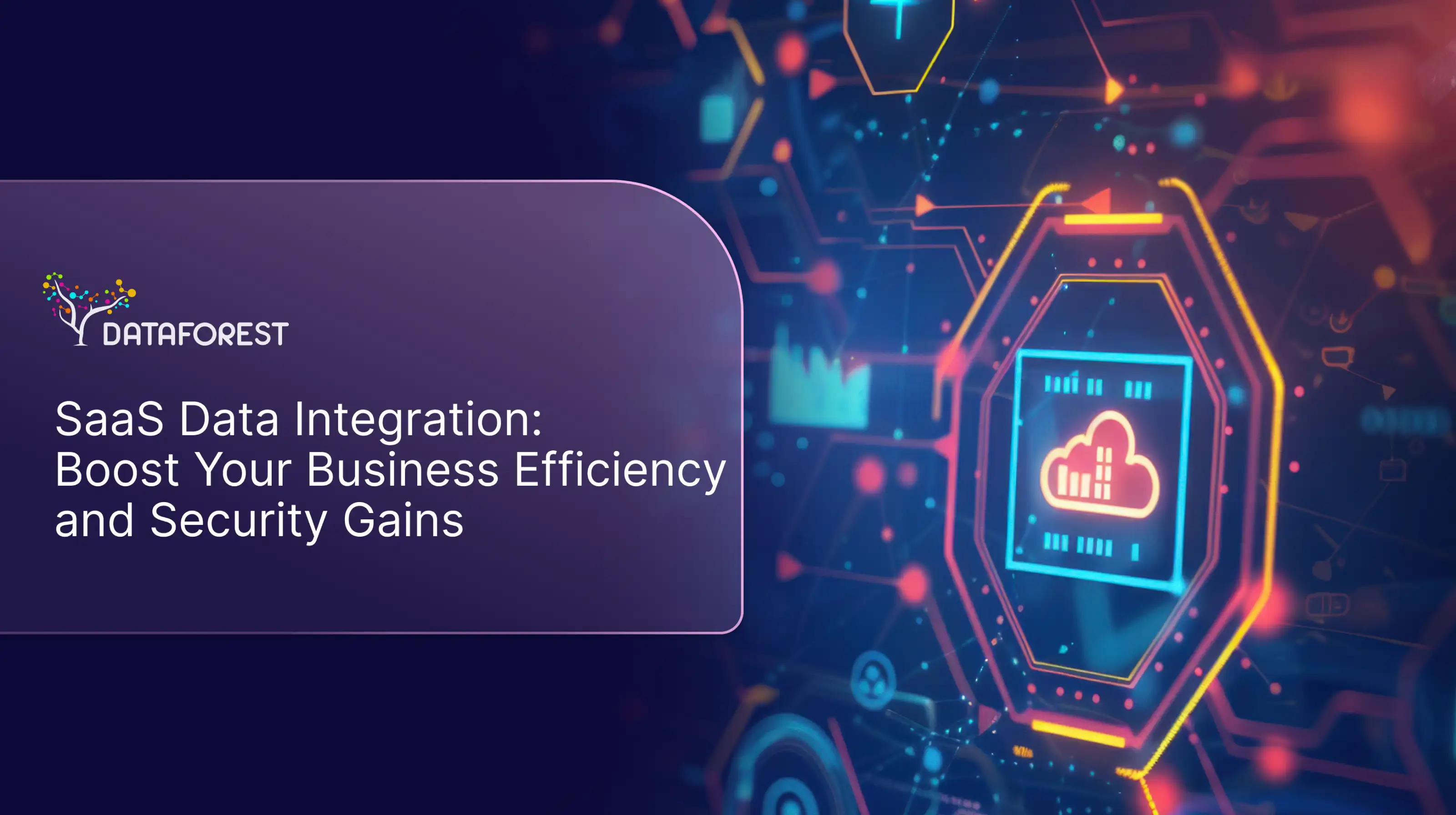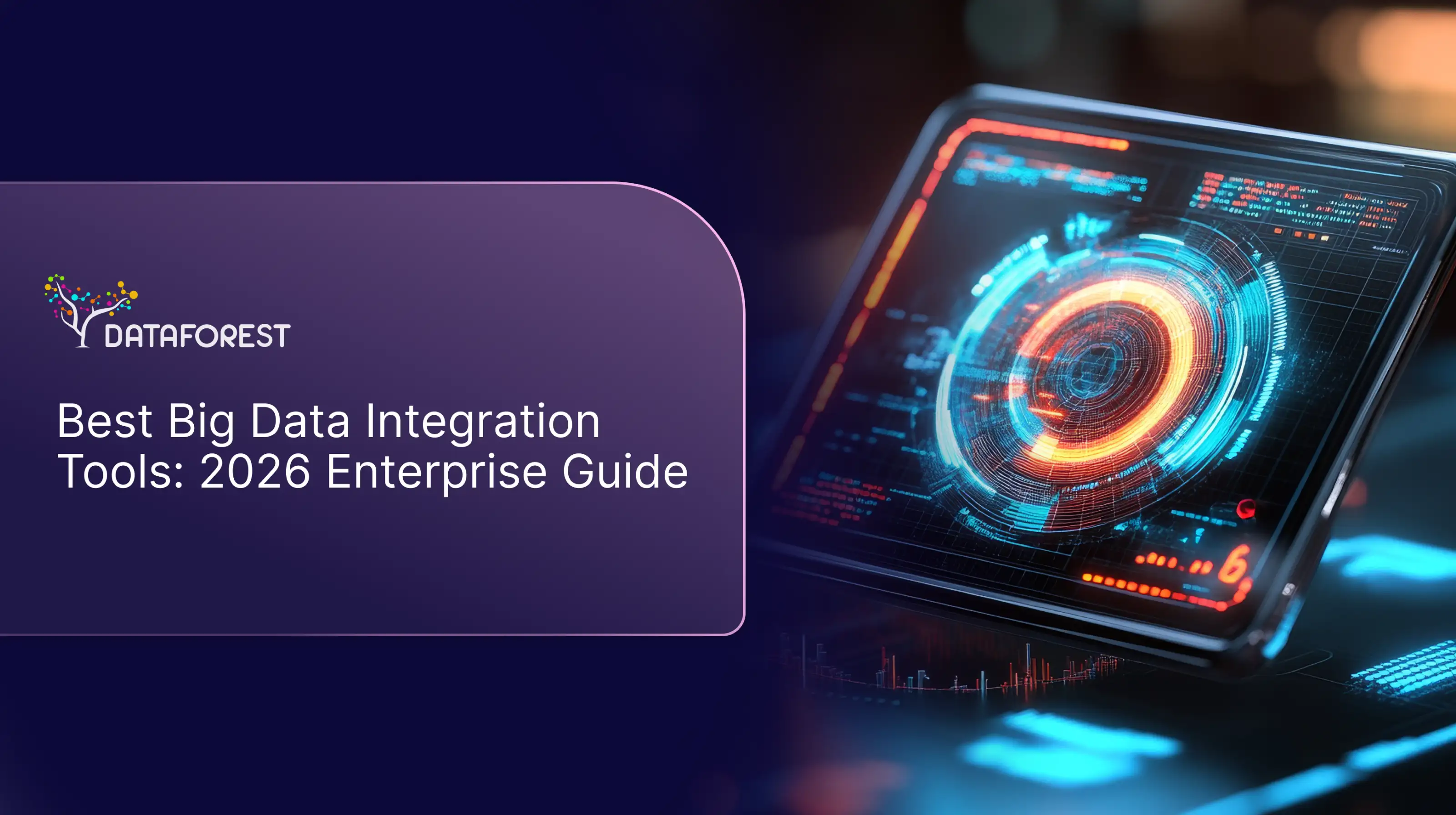Global demand for customized products in a highly competitive manufacturing landscape requires rapid production adjustments. Traditional methods can't keep up with the scale, precision, and speed needed, so AI in the manufacturing industry become essential to optimize every step. With big data from machines, supply chains, and consumer demand, only AI can analyze and act on insights instantly to reduce waste and downtime. AI algorithms predict equipment failures, preventing costly breakdowns and ensuring continuous production. As industries race to achieve zero-emission, efficient, and automated operations, the role of AI in manufacturing becomes the only way to meet these high standards and stay in business. Book a call if you want to always be on the cutting edge of technology.
.webp)
The Rise of AI in Manufacturing
The AI in manufacturing market was valued at around $5.07 billion in 2023 and is expected to explode to $68.36 billion by 2032. This growth reflects how manufacturers are increasingly leaning on AI technologies to streamline operations and enhance efficiency.
Key Benefits of AI
AI in manufacturing benefits include:
Increased Productivity: AI can ramp up productivity by as much as 50%. For instance, predictive maintenance – AI in car manufacturing anticipates equipment failures—can cut unexpected downtimes by nearly 50%, keeping production lines humming along.
Quality Control: AI-powered inspection systems can achieve up to 90% accuracy in spotting defects, which means fewer faulty products make it to the market. This capability can reduce defective items by about 50%, saving time and resources. AI use cases in manufacturing demonstrate impressive improvements in quality control, especially in AI in automotive manufacturing, where product integrity is critical.
Cost Savings: Automating routine tasks with AI can lower labor costs by around 25%. Plus, AI in manufacturing helps minimize material waste by up to 15%, making operations cheaper and more eco-friendly.
Faster Decision-Making: With real-time data analysis, manufacturers can make quicker production schedules and inventory management decisions, improving accuracy by about 33%.
Real-World AI in Manufacturing Examples
BMW: At their plant, BMW uses AI for welding and inspections. This tech has saved them over $1 million annually thanks to improved precision and quicker error detection.
Danone: The food giant employs AI use in manufacturing to enhance demand forecasting, achieving a 20% improvement and significantly cutting down on product waste—by about 30%.
Intel: Known for its chips, Intel has rolled out thousands of AI use cases in manufacturing across its semiconductor processes. This has led to better yields and enhanced productivity while streamlining defect detection.
Flex: This electronics manufacturer adopted an AI-driven defect detection system that boosted inspection efficiency by over 30% and resulted in a product yield of 97%.
The Transformative Impact of AI in Manufacturing
The future of AI in manufacturing brings agility, responsiveness, and resilience across operational areas.
Improved Quality and Efficiency
- Electronics manufacturer Foxconn saw a 50% reduction in production defects using AI in the manufacturing industry by visual inspection systems on their assembly lines.
- Automaker Audi saw a 20% increase in production efficiency at one of its plants using AI in manufacturing algorithms to optimize robot movements and material flows.
- Chemical company BASF experienced a quarter decrease in unplanned downtime across its manufacturing after deploying AI-powered predictive maintenance.
Enhanced Predictive Maintenance
- Aircraft engine manufacturer Rolls-Royce reduced unexpected maintenance events by 20% using predictive analytics and AI in manufacturing on sensor data from its engines.
- Consumer goods giant Procter & Gamble reduced inventory levels by 15-20% and increased service levels by 3-5% using AI-based demand forecasting and supply chain planning.
- Schneider Electric improved its inventory turns by 22% and cut logistics costs by 6% through AI-driven supply chain optimization.
Supply Chain Optimization
- Electronics manufacturer Foxconn reported a 50% reduction in production defects after implementing AI-powered visual inspection systems on their assembly lines.
- Automaker Audi saw a 20% increase in production efficiency at one of its plants using AI in manufacturing algorithms to optimize AI robots in manufacturing movements and material flows.
- After deploying AI-powered predictive maintenance, the chemical company BASF experienced a 25% decrease in unplanned downtime across its AI manufacturing facilities.
The quantifiable benefits of AI in manufacturing are clear – the technology enables step-change improvements in quality, efficiency, asset performance, and supply chain responsiveness.
Defining AI in Manufacturing
In manufacturing, artificial intelligence is using advanced tech to supercharge traditional processes. AI in manufacturing gives factories the power to sense, crunch, and respond to operational data in ways that are out of reach.
Predictive Maintenance
AI-powered analytics on equipment sensors predicts when machines will need maintenance. This lets factories switch from scheduled fixes to proactive maintenance. It reduces downtime, extends equipment lifespan, and optimizes maintenance.
Quality Control & Inspection
Computer vision and deep learning models automate quality checks, spotting defects and issues faster and more accurately than human inspectors. AI-powered quality control blows traditional manual sampling out of the water and improves product quality, cutting costly rework.
Supply Chain Optimization
AI algorithms crunch mountains of supply chain data to forecast demand, optimize inventory, and automate logistics. This helps manufacturers respond quicker and better to changing market conditions, reducing waste and boosting efficiency.
Process Optimization
AI studies manufacturing big data to find ways to streamline workflows, cut waste, and improve overall equipment performance. This drives higher productivity, lower costs, and better quality than traditional optimization.
Adaptive Production
Generative design powered by AI in car manufacturing lets engineers rapidly experiment with new product designs and configurations. It unlocks more customizable manufacturing that keeps up with evolving customer needs.
The big difference between AI-powered manufacturing and old-school methods is the ability to work with data in real time. Legacy manufacturing relied heavily on human know-how, manual processes, and historical info. But AI in manufacturing brings advanced analytics, automation, and decision-making that blow limitations.
AI in Manufacturing Tackles Pain Points with Smart Data and Automation
The common thread in using AI to tackle manufacturing pain points is making smart, data-driven decisions and automating the heck out of things.
Select what you need and schedule a call.
The Benefits of AI in Manufacturing
AI delivers a ton of manufacturing benefits that give early adopters some competitive advantages.
Boosted Efficiency
Optimization algorithms in AI used for manufacturing to streamline workflows, cut waste, and crank up equipment performance. It translates to higher productivity, lower costs, and better product quality. As for AI in automotive manufacturing, Audi saw a 20% jump in efficiency at one of its plants by using AI in manufacturing to fine-tune robot movements and material flows.
24/7 Production
By bringing AI into steel manufacturing for predictive maintenance, factories swap out reactive repairs for proactive fixes. This keeps the lines running – AI in manufacturing analytics forecasts equipment issues before they happen, so you avoid unexpected downtime. Aircraft engine maker Rolls-Royce was able to cut unexpected maintenance by 20% with its AI-driven predictive maintenance program.
Slashed Costs
Those efficiency gains and uptime improvements from AI in manufacturing directly cut operating costs. Plus, AI-powered supply chain planning helps companies better predict demand, manage inventory, and automate logistics - driving even more savings. Consumer goods giant Procter & Gamble, for example, trimmed inventory by 15-20% and logistics costs by 5% using its AI-based planning tools.
Quality Boost
Computer vision and deep learning models turbocharge quality control, spotting defects and problems way faster and more accurately than human inspectors. This crushes traditional manual sampling, slashing product defects and rework. Electronics maker Foxconn saw a 50% drop in production issues after implementing AI-powered visual inspection across its assembly lines.
Safer Workplaces
AI can improve manufacturing safety in a couple ways. Predictive maintenance helps avoid unexpected equipment failures that could pose risks to workers. And AI-powered robotics and autonomous systems can take on dangerous, repetitive tasks – minimizing human exposure to hazards in the factory.
Faster Innovation
Generative design powered by AI in manufacturing lets engineers rapidly experiment with new product designs and configurations. This unlocks more adaptive, customized manufacturing that can keep up with evolving customer demands. It's a massive advantage in today's fast-moving markets, where companies need to quickly respond to changing preferences.
Long-term Impact of AI on Manufacturing
The integration of AI in manufacturing changes the industry's future through several key technological innovations:
Digital Twins & Simulation
- Advanced AI-powered digital twins create real-time virtual replicas of production systems
- Predictive modeling enables the testing of scenarios without disrupting actual operations
- Machine learning algorithms continuously optimize processes by analyzing virtual simulations
Smart Factory Evolution
- Edge computing + AI in the manufacturing sector enables real-time processing of sensor data from IoT devices
- Neural networks drive autonomous decision-making across connected systems
- Computer vision and deep learning enable adaptive quality control that improves over time
Sustainable Manufacturing
- AI algorithms optimize energy consumption patterns in real time
- Predictive analytics minimize waste through precise resource allocation
- Machine learning models maximize equipment efficiency and longevity
Supply Chain Transformation
- Reinforcement learning algorithms enable self-optimizing logistics networks
- Natural language processing automates supplier communications and documentation
- AI-powered demand forecasting reduces excess inventory and transportation
Workforce Augmentation
- Collaborative robots (cobots) with computer vision work safely alongside humans
- Machine learning assists workers with complex decision-making
- AR/VR training powered by AI in manufacturing accelerated skill development
Market Competitiveness
- Generative AI in manufacturing enables rapid product development and customization
- Deep learning analytics provide real-time market intelligence
- Neural networks optimize pricing and production planning dynamically
The long-term implications
Manufacturers who successfully leverage these AI capabilities will gain significant advantages.
Innovation Leadership
- Faster product development cycles
- More efficient R&D processes
- Greater customization capabilities
Operational Excellence
- Optimized resource utilization
- Reduced environmental impact
- Enhanced quality control
Market Responsiveness
- Real-time demand sensing
- Dynamic production planning
- Personalized customer experiences
Those who fail to adopt these technologies risk falling behind in an AI-driven global marketplace.
Challenges and Solutions in AI Manufacturing Implementation
When manufacturers dive into AI, they hit some big challenges, from keeping data safe to handling job changes.
Data Security Concerns
AI in manufacturing needs tons of data to work, but that also means a lot of sensitive info is floating around. If someone gains unauthorized access, it could expose production secrets or customer data, which can be a huge problem financially and reputationally.
How to Tackle It: Companies up their cybersecurity with encryption, firewalls, and regular security audits. Many also use AI's capabilities, like anomaly detection, to spot any fishy data access patterns.
Real-World Example: Siemens uses AI-based anomaly detection to keep an eye out for unusual data activity. This way, they catch any threats before they become full-blown security issues, keeping their data under lock and key.
Workforce Displacement
With AI in manufacturing taking over repetitive tasks, there’s a real concern about job loss. Workers in roles that are easier to automate might feel like their positions are at risk, causing worry and pushback against AI adoption.
How to Tackle It: Companies are focusing on reskilling workers to team up with AI rather than cutting jobs. By teaching employees to manage and monitor AI in manufacturing tools, they’re shifting people into roles where they work with the tech rather than being replaced by it.
Real-World Example: BMW tackled this by offering training programs that upskill employees to work alongside AI tech on the factory floor. They keep their jobs and pick up new skills, and BMW gets a workforce ready to handle their AI-driven systems.
Ethical Considerations
AI in manufacturing raises many ethical questions, like whether it respects data privacy and makes fair decisions. Sometimes, AI-driven choices can seem like a black box, and it's tough to know if they're fair or in line with company values.
How to Tackle It: Companies add transparency to AI systems and set up ethical guidelines to make sure decisions are responsible. Bringing in third-party audits is another way to keep things on track.
Real-World Example: General Electric put together an AI in manufacturing ethics framework that helps them evaluate and audit their AI’s impact. They use it to make sure decisions around production and scheduling are fair and transparent, so they’re using AI responsibly.
High Initial Investment Costs
Getting AI in manufacturing up and running isn't cheap. The upfront costs can be steep, from buying the software and hardware to hiring skilled people. For smaller manufacturers, it might feel out of reach.
How to Tackle It: Starting small with pilot projects lets companies dip a toe in the AI waters without breaking the bank. AI-as-a-Service (AIaaS) platforms are also a good option since they provide access to AI in manufacturing tools on a subscription basis, with no considerable setup costs.
Real-World Example: A mid-sized automotive parts company first tried AIaaS for predictive maintenance. With a simple monthly subscription, they saw the benefits of reduced downtime and were able to scale up from there without big upfront costs.
Data Quality and Integration Issues
Good data is essential for AI in manufacturing to work effectively. AI models need good data to perform well, but in manufacturing, data often comes from multiple sources and formats, which can create a mess. Poor-quality data leads to unreliable predictions, and that’s a quick way to lose trust in AI.
How to Tackle It: Cleaning and integrating data before launching AI in manufacturing systems is critical. Many companies are setting up centralized data platforms to unify data from all sources and running validation checks to make sure everything's accurate.
Real-World Example: Johnson & Johnson invested in a central data platform that pulls together their sites' information. With this setup, their AI-driven maintenance and quality control systems get accurate data, which improves predictions and reliability.
.webp)
Tech Vendors: Your AI in Manufacturing Wingmen
Such tech partners as DATAFOREST roll up their sleeves and dive deep into your current setup to figure out where AI really makes a difference, whether it's spotting defects or predicting when machines might break down. They're the ones who make sure their AI solutions play nice with your existing systems. The vendor team acts like AI in manufacturing coaches, showing your workers the ropes on how to work with these new intelligent predictive maintenance tools. They keep their eyes on the numbers, tracking how well the AI performs and tweaking things to make sure you're getting your money's worth in terms of production efficiency. When things get glitchy or you need updates, they're the ones you call. Plus, they keep you in the loop about cool new AI features you might want to add to your manufacturing setup down the road. Please complete the form and level up your manufacturing with AI.
FAQ
How can AI enhance predictive maintenance strategies in manufacturing?
AI in manufacturing is really shaking things up when it comes to predictive maintenance. Analyzing data from sensors on machines spots signs of potential failures before they happen. This means manufacturers fix problems before they lead to costly downtime, keeping everything running smoothly and efficiently.
What role does AI play in optimizing production processes and reducing waste?
Regarding optimizing production, AI in manufacturing is a super-smart assistant. It reads real-time data to help manufacturers make better decisions about scheduling and resource use, which cuts down on waste. Plus, with AI-powered robots handling repetitive tasks, companies boost their efficiency and focus on what matters.
How can AI improve product quality and reduce defects in manufacturing?
AI in manufacturing plays a big role in improving product quality by using advanced monitoring and inspection techniques. With computer vision technology, it quickly scans products for defects that might slip past human inspectors. By catching these issues early in the production line, manufacturers adjust immediately, leading to higher quality products that customers will appreciate.
What are the cybersecurity risks associated with implementing AI in manufacturing systems?
While AI in manufacturing brings a lot of benefits, it also introduces some cybersecurity risks. As manufacturing systems become more connected, there's a greater chance for hackers to exploit vulnerabilities and access sensitive information or disrupt operations. With more devices collecting data through the Internet of Things (IoT), the potential for cyberattacks increases.
How can small and medium-sized manufacturers leverage AI technologies without breaking the bank?
There are plenty of budget-friendly options for small and medium-sized manufacturers looking to get into AI. Cloud-based solutions allow access to powerful AI in manufacturing tools without huge upfront costs – many of them work on a subscription basis. Partnering with tech companies or tapping into open-source platforms helps them implement effective AI in manufacturing strategies without stretching their budgets too thin.
How does AI in manufacturing tackle business pain points?
AI in manufacturing addresses business challenges by automating tasks and optimizing processes, leading to fewer delays and better productivity. It predicts equipment failures, reduces unexpected downtimes, and helps ensure a smoother, more efficient production flow. AI in manufacturing insights improves quality control, minimizing waste and lowering costs.
How is AI used for SMBs in manufacturing?
For small and medium-sized businesses (SMBs), AI in manufacturing offers affordable options through cloud-based or subscription-based tools, making it accessible without large upfront investments. AI in manufacturing handles repetitive tasks, frees up employee time, and boosts productivity, even in smaller operations. SMBs also leverage AI in manufacturing for more competent inventory management and improved demand forecasting to better align resources.
How do you use AI in manufacturing with a vendor?
An AI in manufacturing vendor assesses your manufacturing needs to pinpoint areas where AI can bring immediate improvements, such as predictive maintenance or quality inspection. They integrate AI in manufacturing solutions into existing systems and train employees to manage the new tools. Vendors also offer ongoing support to track AI in manufacturing performance and make adjustments for better efficiency.



.webp)




.svg)
.webp)















